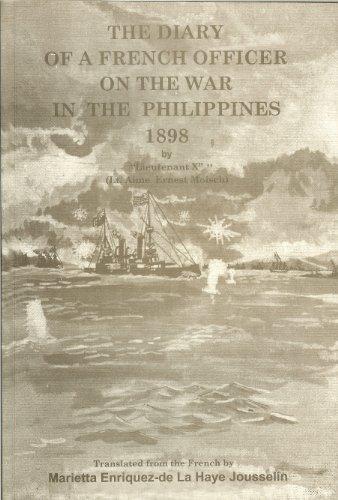This morning, as part of the team, I visited the Kaiser. I was received on the gangway by a tall, young, blond and extremely pleasant officer who spoke to me in such good French that I did not dare utter a word in German.
I asked him if he knew what was going on.
–No, said he. However, yesterday the Americans stated that a Spanish squadron had been spotted in the Indian Ocean, presumably on its way here to assist the Philippines.
–That is necessary, I said.
–Yes, he replied, perhaps.
–And where are the American troops? In Japan?
–We have no idea. They themselves have no news.
As I left him, he sarcastically added, “Oh! this war. . .!,” with the smile of someone not really taking the subject seriously.
This afternoon, the commandant of the Kaiser —a young, well built, bearded man with wide shoulders– came on on board. These Germans cannot be reproached for their appearance. One of their main objectives seems to be to befriend us.
At 4:45, another German cruiser, the Prinz-Wilhelm, dropped anchor. Now there are five German ships in the bay of Manila: Kaiserin-Agusta, Kaiser, Irene, Prinz-Wilhelm, Cormoran, all forming a solid defense. On the French side, it is the Bayard, the only wooden ship with 24 short cannons and rotting hull, its topgallant mast waving in the midst of these steel vessels.
Life in Manila is becoming increasingly disagreeable. Fresh food is becoming rare. Foodstuff here is double the price. With the departure of the Chinese there are no more shopkeepers. There are no more delicacies for the beautiful Spanish women, but they remain cheerful in spite of the present situation. It takes very little to amuse them, these Spanish women. The men are more sober.
